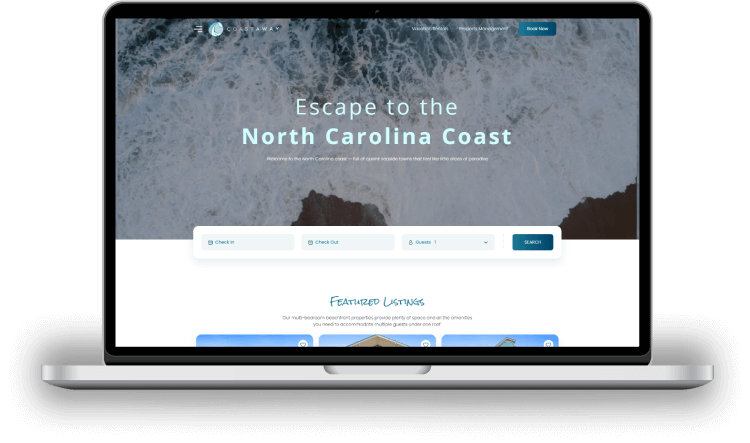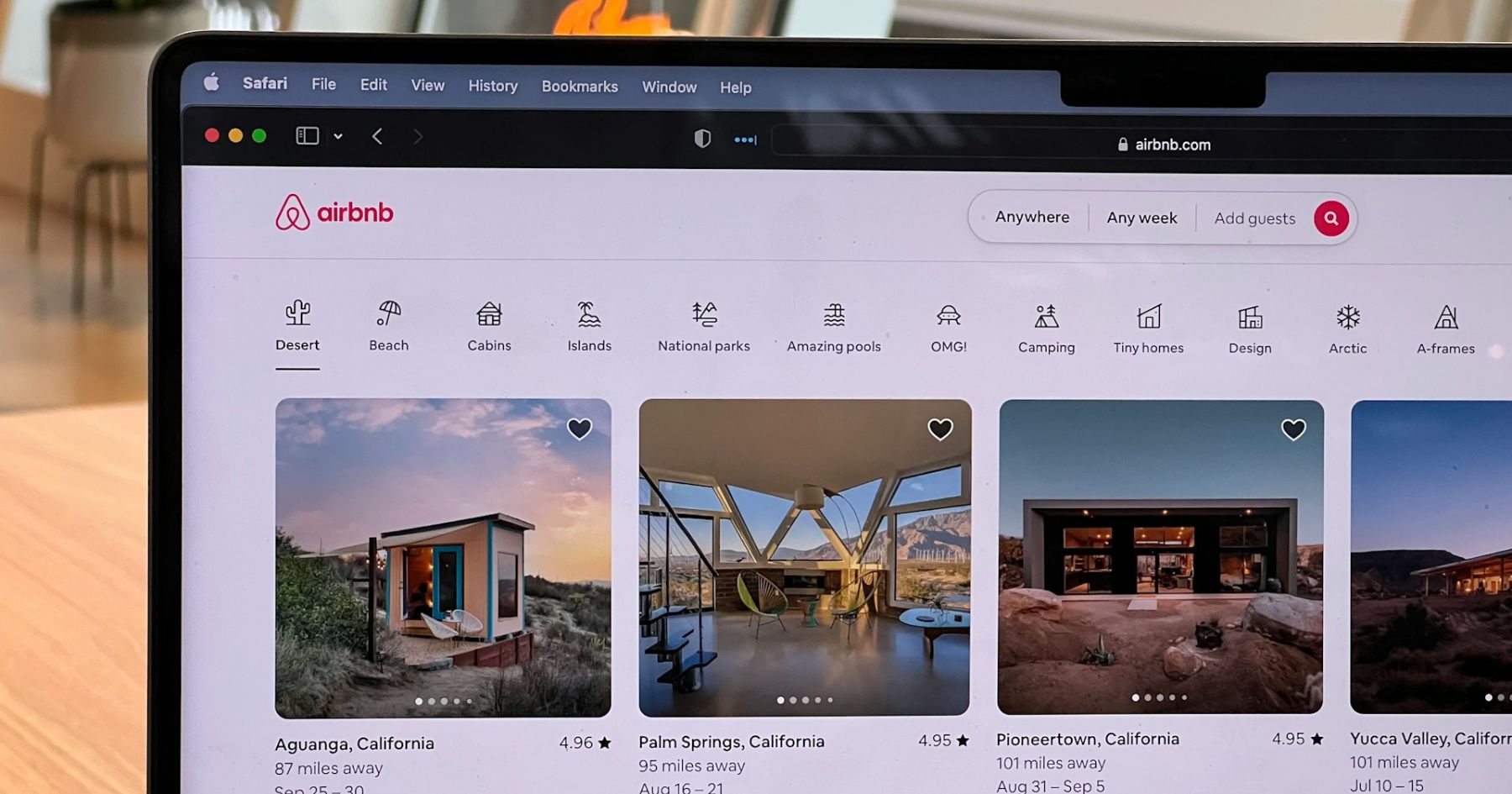Why Rent Guests From OTAs When You Can Own Your Demand With Direct Bookings
Airbnb is making some changes to its policies (yes, again…), and the changes aren’t doing you any favors as a vacation rental manager.
Airbnb’s new rules, many of which went into effect in summer 2025, are highly advantageous to travelers, but leave your business at risk of losing hard-earned revenue. In case you missed it, here are the recent changes introduced to your Airbnb account, along with some ideas for protecting your short-term rental business in light of these disruptions.
Key Takeaways
- Airbnb is introducing new rules that prioritize the guest over the owner, including a “book now, pay later” model, a new chargeback and payment policy, and a restructuring of service fees.
- Property owners need to act quickly to protect their cash flow by adopting stricter cancellation policies, adjusting rates, maintaining thorough records, and establishing financial protection.
- Building a brand and a direct booking machine with an effective marketing strategy and website is the best way to minimize risk and maximize reward for your short-term rental business.
What Are The New Airbnb Rules in 2025 — and What’s Their Impact on Property Managers?
1. Guests can book without paying in full
Airbnb introduced ‘Reserve Now, Pay Later’ (Aug 14, 2025) for US-to-US bookings on listings with Flexible or Moderate cancellation. Guests can hold a reservation with $0 due at booking; the balance is due before the free-cancellation window ends. If they don’t pay, Airbnb cancels.
2. Guests can receive full refunds for cancellations
Airbnb also introduced a new limited policy that allows guests to obtain a full refund if they cancel their booking at least 14 days before check-in, and a 50% refund for cancellations made 7–14 days before. And, if you relied on “Strict” listings, double-check that this feature is still in place. All new listings will be set to “Firm” instead of “Strict” unless the host opts in to offer guests more flexibility.
3. Chargebacks can occur weeks (or even months) after a completed stay
The change that has Airbnb hosts up in arms (and rightfully so!) is the new chargeback process. This rule states that if a guest disputes their stay with their credit card company, Airbnb can reverse your payout to refund the guest even after the stay is over (and is not liable to refund you).
4. Payments can be delayed or withheld with no justification
Airbnb now has the right to withhold or delay payments flagged as potentially risky. Risks can be caused by a sudden increase in bookings, inadequate documentation, or a guest dispute.
5. Airbnb is moving to a single service fee structure
Airbnb announced that a service fee restructure will be rolled out for hosts connected through an API/property management software, such as OwnerRez or Guesty, on October 27th, 2025. Currently, Airbnb deducts a 3% host fee, and guests pay a 14–16% fee on top of the nightly rate. Airbnb is moving to a single fee structure, deducting a flat 15.5% service fee from your payout.
6. Guests see the full price when booking
Since April 2025, when searching for properties, guests see the full booking amount (before taxes) in search results, which can expose high cleaning costs or other additional fees.
7. Off-platform links are no longer permitted
As of May 2025, Airbnb began to enforce stricter guidelines for using off-platform links, including app downloads and data collection. This rule prohibits activities like external check-in apps, email captures before a stay, and off-platform payments or upsells.
8. Airbnb reactivated automated blocks
Also in May, Airbnb reactivated anti-party blocks around peak holidays (like Memorial Day and the Fourth of July) to reduce “high-risk,” one-night, last-minute bookings. This is great for neighbors, but not so great for hosts looking to fill rentals at the last minute on major summer holidays.
Airbnb Optimizes for Guests. You Should Optimize for Your Business.
- Airbnb shifts risk toward hosts
- $0-upfront bookings increase calendar hold risk if balances aren’t paid.
- Universal 24-hour grace periods & more guest-friendly policies reduce your protection windows.
- Chargebacks can hit after checkout; Airbnb can claw back funds from your future payouts.
- Platform rules now limit your ability to build a guest list
- You can’t push off-platform, link out, or market to Airbnb-sourced contacts. That caps lifetime value if you depend on Airbnb for demand.
- Margin pressure: 15.5% host-only fee for software connected hosts.
This is why you need to build a direct demand engine you control. A foundation where you set your policies, you own the relationship and you can protect your margins.
OTAs are great for guest discovery but they’re not your CRM, and they can reverse your payout after a perfect stay.
What Next? Steps to Take Now to Protect Your Cash Flow
It’s no secret Airbnb isn’t doing your business any favors with these changes, but there are a couple of things you can do right now to mitigate the damage of these new regulations. Here are the most critical steps to take to protect yourself as a short-term rental manager (or owner) using Airbnb:
- Build Financial Security — Set money aside to cover a few months of operational expenses to ensure payment delays or chargebacks will not disrupt your cash flow.
- Choose Stricter Cancellation Policies — Adopt a less flexible cancellation policy (“Strict” or “Firm”) to discourage last-minute cancellations that lead to lost profits and an empty rental calendar.
- Keep Thorough Records — Be prepared to combat guest disputes with solid evidence. Set strict house rules, maintain detailed records of your interactions with every guest (including messages, photos, and check-out records), and only welcome guests who have been ID-verified.
- Adjust Your Rates — Bump your rates upward by up to 15.5%, so you can maintain the same earnings for each rental after Airbnb’s new service fee structure goes into effect in October.
- Evaluate Fees — If you charge a high cleaning fee, extra guest fee, or pet fee, you may want to reevaluate your fee structure to ensure inflated costs don’t drive guests away in search results.
- Capture Guest Emails — Since you can’t collect guest emails on Airbnb’s platform, consider using an email opt-in for Wi-Fi at your properties (such as StayFi) for direct marketing purposes.
- Diversify Your Booking Platforms — List your properties on other OTAs, like Booking.com or Vrbo, or, better yet, focus on increasing direct bookings by building a direct booking marketing machine.

To keep the same payout under 15.5% host fee you’ll need to raise prices ~14.8%.
Why Booking Direct Is the Key to the Long-Term Success of Your Vacation Rental Company
While there are some things you can do to combat Airbnb’s changes, the truth is, if your properties are only listed on Airbnb (or other OTAs)… your earnings are still at the mercy of a third-party platform that doesn’t have your best interests at heart. Airbnb is making it harder for you to do business on their platform — which means it’s time to pivot to a new plan that puts your priorities first.
Every $1 booked direct saves 15–30% in OTA fees and gives you a repeatable guest you can actually talk to.
Now more than ever, it’s imperative to develop a direct booking strategy for your short-term rental business that puts you in control of payment collection and terms, cancellation policies and disputes, the guest experience, and cash flow with a direct booking marketing machine.
Key Elements of a Direct Booking Machine
Ready to reduce your reliance on Airbnb and other OTAs? It’s time to encourage direct bookings with a successful marketing strategy that incorporates the following elements:
- Direct Booking Website – Build a dynamic direct booking website that showcases all your properties in one place, promotes brand awareness, allows you to manage and shape the guest experience, and integrates with a seamless booking engine to drive direct bookings.
- Brand Awareness – The vacation rental market is competitive. By building a brand, you can shape how your business is perceived and highlight what makes you stand out from the crowd.
- Search Engine Optimization – Build sustainable website traffic and secure bookings with search engine optimization (SEO) services, including keyword research, content creation, and more.
- Email Marketing – Develop lasting relationships with your guests (and turn them into repeat customers!) with authentic email interactions that drive bookings, leads, and five-star reviews.
- Paid Advertising – Give your vacation rental properties an extra boost in visibility (and bookings!) with a pay-per-click (PPC) advertising campaign.

Playbook: Build a Direct-booking Machine (& use OTAs Tactically)
Get a direct booking website that is built to convert (your brand, your rules)
- Real-time availability + PCI-compliant checkout (Stripe), instant confirmation.
- Clear cancellation & deposit terms (tighter than OTAs if you want), trip insurance add-on, and a “book direct & save” price promise with transparent fee breakdown mirroring Airbnb’s “total price” clarity.
- Trust drivers: social proof, badges, refund/assurance language, FAQs, phone/text.
Increase ownable traffic
- Be listed on Google Vacation Rentals. Connect through a certified connectivity partner/PMS so Google routes high-intent traffic straight to your site (no Google commission).
- Local SEO: create high-intent pages (“[neighborhood] vacation rentals with pool”), event pages, and “best for” collections (pet-friendly, EV charger, hot tub).
- Meta & search ads on brand and destination terms; retarget site visitors with first-party pixels (GA4/Ads), not Airbnb guest data.
Utilize email/SMS you actually can use
- Capture on your site (lead magnets, “unlock 5% direct discount”), at in-person experiences you run, or via opt-in from non-OTA channels.
- Do not solicit contact info in Airbnb messaging or add Airbnb guests to marketing lists; that’s now explicitly restricted.
Set direct booking goals and distribute properties intentionally
- Set a target (e.g., 50–70% direct over 12–18 months). Use Airbnb/Vrbo tactically to fill shoulder periods and seed new properties with social proof.
Use your own policies
- Use your own Firm/Strict monthly policies and deposits for direct bookings; require full payment earlier for peak dates.
- Add fraud screening and ID verification in your checkout (you control the tools).
Increase guest loyalty
- Offer return-guest pricing, credits, or perks only through your channels.
- Post-stay (non-Airbnb guests), automate review requests on Google/Tripadvisor to lift organic demand.
Take Control of Your Vacation Rental Business with Magnetic Strategy
Ready to develop a direct booking strategy for your short-term rental business that actually works (and doesn’t leave your success at the mercy of Airbnb)?
If so, turn to our team of marketing experts at Magnetic Strategy. We love helping vacation rental managers (like you!) maximize direct bookings, gain independence from OTAs, and keep more money in their pockets with our vacation rental marketing strategies.
Contact us to get started!
* Airbnb and the Bélo logo are trademarks of Airbnb, Inc. All other product names, logos, and brands are property of their respective owners and are used for identification purposes only. The Airbnb name/logo appears here for identification and commentary. No affiliation or sponsorship is implied.











